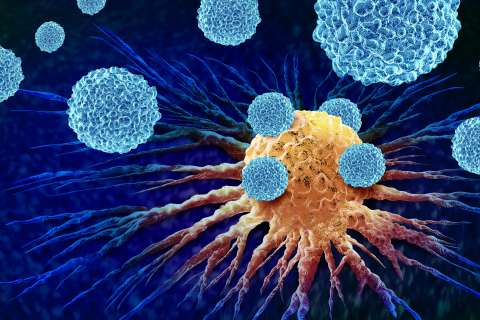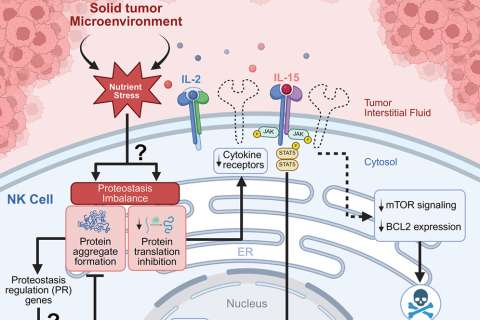Hearing a doctor say, “You have cancer” is a pivotal moment in anyone’s life. Anxiety, fear and disbelief surge as the mind goes blank.
What does this mean? What happens now? Will I survive?
“Cancer is a scary word to many in that its implications are really varied,” says Elizabeth Cleary, PhD, a clinical psychologist with the Simms/Mann-UCLA Center for Integrative Oncology.
Dr. Cleary offers the following guidance for how to cope with a cancer diagnosis:
Allow space to adjust to the news
A cancer diagnosis means one’s life is about to change, as medical appointments and other health needs suddenly become priorities.
“I encourage people to be intentional about what tasks and responsibilities could be set aside for now,” Dr. Cleary says.
Perhaps even more challenging to navigate than everyday schedules is the varied emotional terrain that comes with a cancer diagnosis.
Processing the news emotionally could look like crying, going for a run, talking to loved ones, time alone, denial, anger, all of the above or anything in between. Give yourself permission to feel it all, Dr. Cleary suggests.
“While we’re often taught that you feel one thing — you feel sad, or you feel anxious — in reality, you can simultaneously feel both anxious and hopeful, both sad and grateful, both angry and optimistic,” she says. “Give yourself time to absorb information from your medical team and observe what feelings you’re having in response.”
Opt for approach-oriented coping
The most beneficial coping strategy is approach-oriented rather than avoidance-oriented, Dr. Cleary says. Approach-oriented coping includes processing emotions, feeling feelings, collecting information and problem solving. Avoidance-oriented coping looks like distraction, denial and emotional numbing.

“What we know from the research is that approach-oriented coping in response to a diagnosis is going to be most helpful,” Dr. Cleary says.
That doesn’t necessarily mean all positive thinking, she says.
“You can be optimistic. You can be hopeful. And you're also allowed to be angry. You're also allowed to be anxious, disappointed or sad,” Dr. Cleary says. “Oftentimes, people try to categorize the experience and say, ‘I can only think positive thoughts,’ or it’s all catastrophic and terrible. Instead, practice emotional flexibility and allow for a wider mix of feelings. Try to observe and acknowledge your feelings without judgment.”
Investigate available support and ask yourself what you need
“A helpful piece of the puzzle is understanding what support is out there for you from the beginning,” Dr. Cleary says.
Beyond the range of counseling options and support groups available at the Simms/Mann Center, there may be resources available through national cancer organizations, neighborhood groups and religious communities.
Because individual needs following cancer diagnosis are varied, it’s important to assess what makes sense for you personally, Dr. Cleary says. Some people may want to connect with others and talk about their diagnosis, while others may prefer to discuss things exclusively with their doctor and a trusted loved one. Some may find comfort in quiet while others want company.
Write down your questions and concerns
When you first get a potentially life-changing medical diagnosis, your mind may go silent. You have a million questions, yet you can’t think of a single one.
This is normal, Dr. Cleary says: “When you first receive a diagnosis, you may not know what to ask.”
As you begin processing the news, take note of questions and concerns to share with your doctor. Write them down so you can get them out of your head and onto paper or into a digital document.
A few common questions include:
- What will my treatment entail?
- What kinds of side effects might I expect?
- What’s reasonable in terms of expectations for work?
“That process of organizing these concerns and writing them down can relieve anxiety,” Dr. Cleary says. “Diffuse anxiety about what a diagnosis means becomes more specific and approachable once you have a clearer sense of its implications.”




